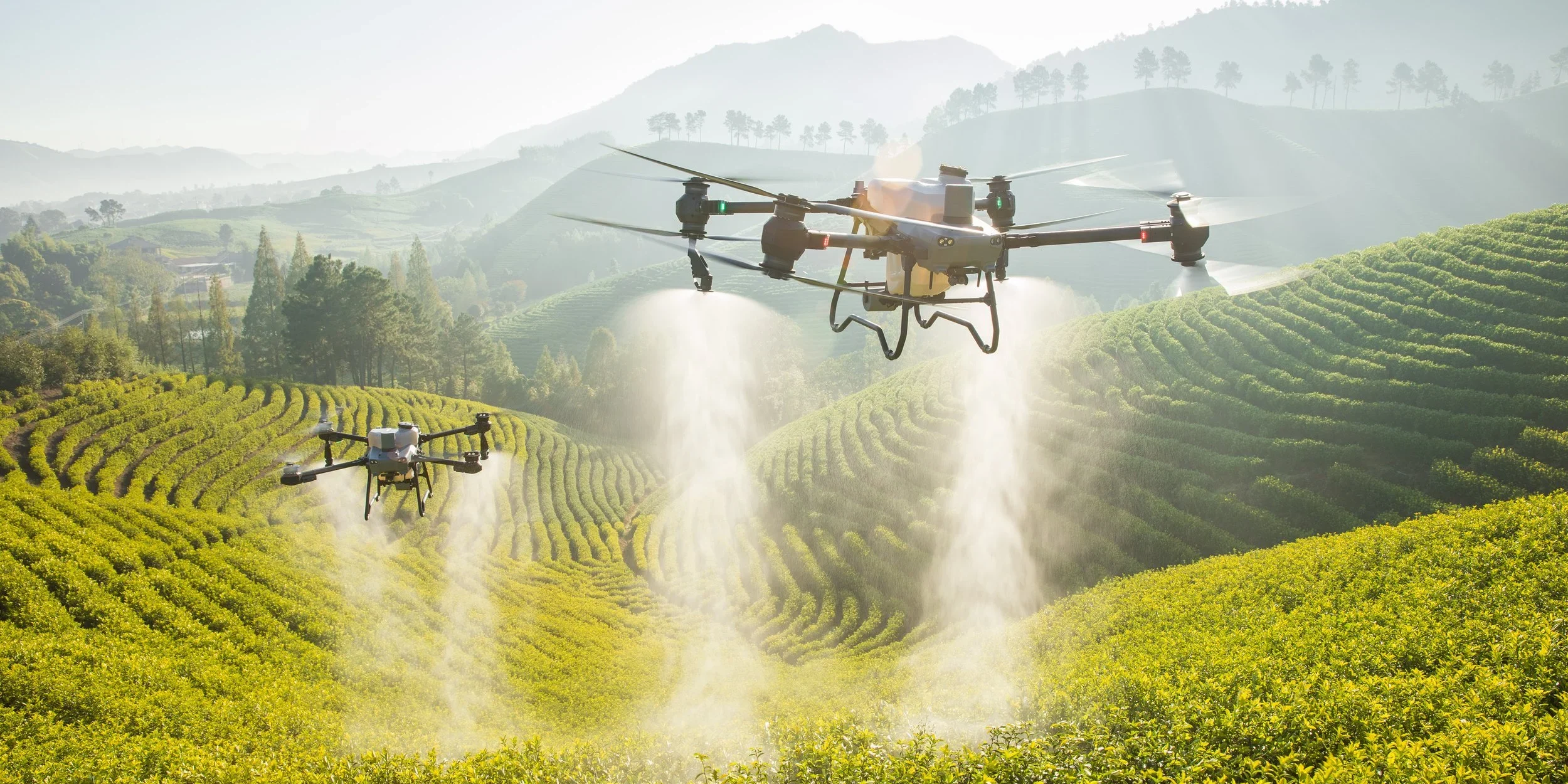Agriculture is one of the world’s oldest industries, but it has never stopped evolving. From the introduction of tractors to the adoption of satellite imaging, each wave of technology has helped farmers grow more food, more efficiently. Today, drones are at the centre of the next agricultural revolution.
Unmanned Aerial Vehicles (UAVs), commonly known as drones, are transforming how farmers and agribusinesses operate. They make farming more precise, cost-effective and sustainable. By capturing aerial data, applying treatments with pinpoint accuracy and monitoring crops in real time, drones are enabling farmers to achieve more with less.
So how exactly are drones used in agriculture, and why should you consider them for your farm? Let’s take a closer look.
Crop Monitoring and Mapping
Traditional crop monitoring is labour-intensive. Walking paddocks, climbing machinery and relying on the naked eye can only tell farmers so much. With drones, farmers gain a complete bird’s-eye view of their land in minutes.
Equipped with high-resolution cameras and sensors, drones can capture detailed aerial imagery that highlights growth patterns, pest infestations and nutrient deficiencies. These images can then be turned into highly accurate crop maps using software, allowing farmers to identify problem areas quickly.
Instead of applying treatments across an entire paddock, growers can now target only the sections that need attention. This not only reduces costs but also minimises environmental impact by cutting down on unnecessary chemical use.
Precision Spraying and Spreading
Spraying and spreading are essential farming tasks, but traditional methods are costly and time-consuming. Spray drones are changing the game.
With payloads ranging from 40-litres on the DJI Agras T50 to 75-litres on the DJI Agras T100, drones can cover large areas quickly and accurately. The T100, for example, is equipped with dual atomising centrifugal sprinklers that deliver even droplet distribution while reducing drift. This ensures treatments are applied precisely where needed, even on hilly or hard-to-access terrain.
For broadacre farms, orchards and vineyards, this translates into enormous time savings and a significant reduction in input costs. And because UAVs can fly low and adjust spray patterns dynamically, they also improve coverage compared to traditional boom spraying.
If you are considering spray drones for your farm, our drone training programs provide CASA-approved pathways, including type endorsements for DJI Agras drones, so you can operate legally and with confidence.
Livestock and Pasture Management
Agricultural drones are not limited to crops. They are increasingly valuable in livestock management too.
Drones allow farmers to monitor herds from the air, reducing the time and effort required to check on stock spread across large or remote properties. With the right sensors, drones can even detect animal body temperature or identify injured livestock.
In pasture management, UAVs can be used to assess grazing patterns and pasture health. This helps farmers make informed decisions about rotation schedules and feed planning, ensuring herds are healthy and land is used efficiently.
Soil and Field Analysis
Drones can provide valuable insights before planting even begins. Multispectral imaging allows farmers to analyse soil conditions, detect drainage issues and identify planting zones with higher or lower fertility.
By combining drone data with software analysis, growers can create detailed maps of soil variability. This enables precise seeding, fertilisation and irrigation strategies, boosting yields while cutting waste.
Irrigation Monitoring and Water Management
Water is one of the most precious resources in farming, and efficient use is critical. Drones can help farmers detect irrigation issues by spotting dry patches, leaks or overwatered areas from above.
Thermal cameras mounted on drones can reveal subtle differences in soil moisture that are invisible to the human eye. This allows farmers to adjust irrigation systems proactively, saving water and improving crop performance.
Equipment Inspection and Farm Security
Farm infrastructure such as irrigation pivots, silos, fencing and machinery can be difficult to inspect regularly. Drones make this easier by providing quick aerial surveys that highlight damage, leaks or wear.
Some farmers are also turning to drones for security. UAVs equipped with cameras can patrol properties, deter trespassers and even provide evidence in the case of theft or vandalism. For remote farms, this added layer of security can be invaluable.
Why Farmers are Choosing Drones
The benefits of agricultural drones go beyond convenience. They are helping farmers:
- Save time: A task that once took days can now be completed in hours.
- Cut costs: By reducing inputs such as fertiliser and pesticide, drones lower operational costs.
- Increase yields: More precise farming practices lead to healthier crops and higher output.
- Improve safety: Drones can handle hazardous tasks like spraying chemicals or inspecting tall infrastructure.
- Protect the environment: Targeted applications reduce chemical drift and water waste.
At NQ Aerovation, we see drones not as a replacement for traditional farming, but as a powerful tool that supports better decision-making and more sustainable practices.
Training and Support for Agricultural Drone Operators
Adopting drone technology is not just about buying equipment. To operate legally and safely in Australia, pilots must hold certifications such as a Remote Pilot Licence (RePL) and, in some cases, a Remote Operators Certificate (ReOC).
NQ Aerovation offers end-to-end support, from helping you choose the right equipment to delivering accredited drone training and ongoing maintenance. As an authorised DJI warranty repairer, we also provide fast and reliable drone repair services to keep your equipment in peak condition.
Final Thoughts
Drones are reshaping modern agriculture by giving farmers smarter, safer and more efficient ways to manage their land and livestock. From monitoring crops to precision spraying, soil analysis and security, UAVs are proving to be an essential part of farming’s future.
If you are ready to explore agricultural drone technology, NQ Aerovation can help. Start by checking out our drone training programs or learn about our expert drone repair and servicing. You can also discover more about our full range of solutions at NQ Aerovation.





